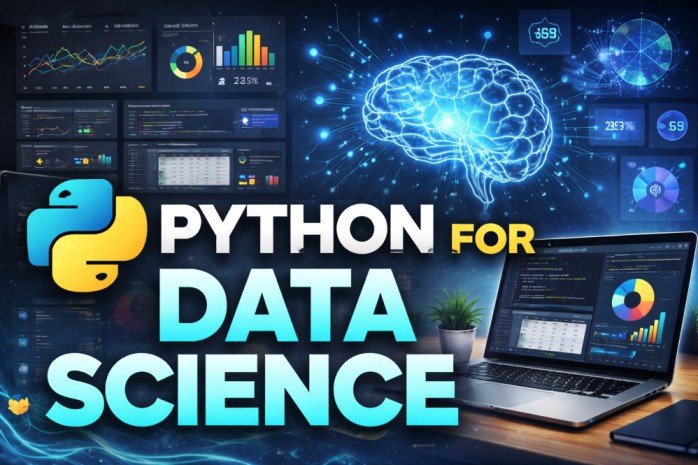In today’s data-driven world, two career paths often create confusion among fresh graduates and professionals looking to transition into IT – Data Analyst and Business Analyst. Both roles are in high demand across industries, but they differ in skills, responsibilities, and career growth. If you’re planning to start or switch your career in 2025, understanding the difference between these two roles will help you make the right choice.

Who is a Data Analyst?
A Data Analyst works primarily with structured and unstructured data. Their job is to collect, clean, analyze, and interpret data to find patterns, trends, and insights that support decision-making.
Key Responsibilities
- Collecting and cleaning raw data from multiple sources
- Using tools like Excel, SQL, Python, R, and Power BI/Tableau
- Creating dashboards and reports for business teams
- Identifying patterns and trends for business growth
- Supporting data-driven decision-making
Skills Required
- Strong knowledge of statistics and data visualization
- Proficiency in SQL, Python, R, and Excel
- Experience with BI tools like Power BI or Tableau
- Problem-solving and analytical thinking
Who is a Business Analyst?
A Business Analyst acts as a bridge between stakeholders and technical teams. They focus on business processes, requirements, and strategy rather than coding or deep statistical analysis.
Key Responsibilities
- Gathering requirements from stakeholders
- Creating documentation like BRD (Business Requirement Document)
- Analyzing business processes and suggesting improvements
- Collaborating with project managers, developers, and QA teams
- Ensuring solutions align with business needs
Skills Required
- Strong communication and documentation skills
- Knowledge of project management and Agile methodology
- Familiarity with tools like JIRA, MS Visio, and Excel
- Business domain knowledge (finance, healthcare, retail, etc.)
- Critical thinking and problem-solving.
Future Scope of Data Analyst vs. Business Analyst in 2025
The demand for data-driven decision-making is skyrocketing in every industry. By 2025, organizations are expected to invest heavily in data analytics and business intelligence tools.
- Data Analysts will continue to play a vital role in collecting, cleaning, and visualizing data. Their expertise in tools like Python, SQL, Power BI, and Tableau ensures companies can make sense of raw data efficiently. With the rise of AI and machine learning, Data Analysts who upskill in predictive modeling and advanced analytics will be in the highest demand.
- Business Analysts, on the other hand, will bridge the gap between technology and business operations. They will translate data insights into strategic actions that improve efficiency, customer satisfaction, and revenue. Skills in Agile, Scrum, requirement gathering, and stakeholder management will make them indispensable in IT consulting and product-based companies.
Salary Comparison in 2025
- Data Analyst: Freshers can earn between ₹5–8 LPA, while experienced professionals can earn up to ₹15–20 LPA depending on skills.
- Business Analyst: Entry-level salaries range from ₹6–9 LPA, and experienced professionals can earn ₹18–25 LPA, especially in finance and consulting sectors.
Career Growth Opportunities
- Data Analyst Path: Data Analyst → Data Scientist → Machine Learning Engineer → AI Specialist
- Business Analyst Path: Business Analyst → Product Manager → Project Manager → Business Consultant
Both roles offer excellent growth, but the direction depends on whether you prefer a technical/data-focused path or a business/strategy-focused path.
Which Career is Better in 2025?
- If you enjoy working with numbers, coding, and data visualization, a Data Analyst career is the right fit.
- If you prefer understanding business needs, communicating with stakeholders, and solving process challenges, a Business Analyst career is better.
The IT industry in 2025 values both roles equally, but demand for data-related skills (AI, ML, Data Science) is growing faster. At the same time, companies will always need Business Analysts to connect technical solutions with business goals.
Final Thoughts
Both Data Analysts and Business Analysts have secure and rewarding career paths in 2025. The choice depends on your strengths and interests. If you want to go deeper into technology and analytics, choose Data Analytics. If you want to work closely with people, processes, and strategy, opt for Business Analysis.
At Novara Techno, Bangalore, we offer industry-focused Data Analytics and Business Analytics training with hands-on projects, mentorship, and 100% placement support to help you succeed in your career.
Join Novara Techno Today
📍 Yelahanka & Marathahalli, Bangalore
📞 +91 7889507989 | 📧 info@novaratechno.com
🌐 www.novaratechno.com







